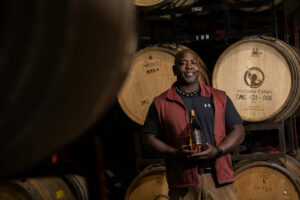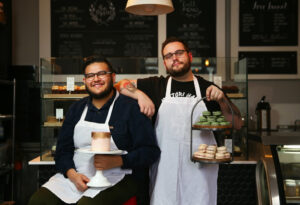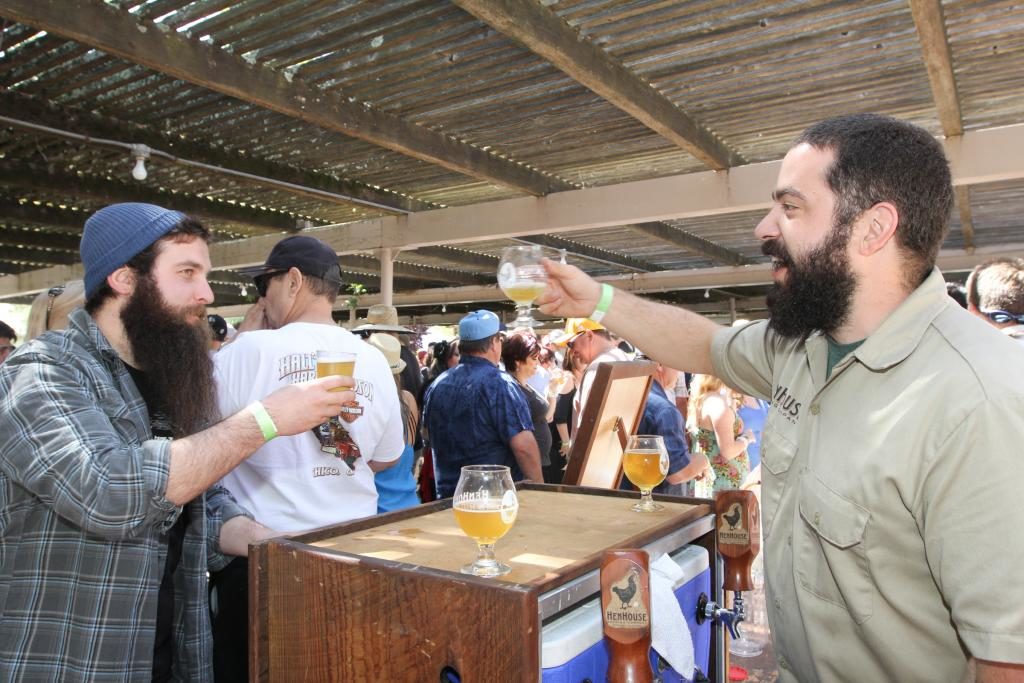It took Collin McDonnell about 15 minutes to decide. He was living in Oakland in 2009, when he brewed an amber ale straight out of Randy Mosher’s “Mastering Homebrew” book.
“I was like, that’s it, I’m gonna open a brewery,” McDonnell said. “That process took me about 15 minutes. The concept that you made it and it tasted so delicious, just struck me like a freight train.”
Never mind that he dumped out the second batch because it was “undrinkable.” Ditching his job as a communications consultant (he’s still not sure what that means), he signed on as an apprentice to Ron Silberstein at the ThirstyBear Brewing Co. in San Francisco. Brewing gigs followed at Beach Chalet, 21st Amendment and Drake’s Brewing, until he finally sat down one day in 2011 with Petaluma weekend brew buddies Shane Goepel and Scott Goynes and they decided, “This isn’t a home brew operation at all anymore. We should license this.”
Holing up in an after-hours space at Rogue Research in Petaluma, they did “the nano-brewing thing” for two years, making around 80 barrels a year in 2012 and 2013 as HenHouse Brewing Co. early beers included an oyster stout, made from Hog Island oyster shells, which sparked rave reviews and put them on the map.
In 2014, after scraping together funding from family and friends, they shot up to 1,000 barrels, eventually moving into a new space shared with Petaluma Hills Brewing Co.
“I like to say we’ve gone from comically small to small,” said McDonnell, 29, a home-schooled Petaluma native who enrolled at Santa Rosa Junior College at 14 and went on to compete for the speech-and-debate team at Bradley university in Peoria, Ill.
Today Goepel does a lot of the day-to-day brewing and McDonnell handles delivery and outreach, spending valuable time talking to sellers and customers.
“I can’t deal with stale beer, so going out and making sure that people are treating the beer well is really, really important to me,” he said. “It’s an area that doesn’t get a lot of attention. There’s a lot that can happen after it goes into the keg.”
Midway through their fourth year, it’s still very much “nose to the grindstone,” McDonnell said. “every once in a while you get to have these moments of, how cool is it that we make beer for a living? Then you realize we don’t have any employees, nobody gets any vacation time. … We’re still very much in start-up mode.”
But no matter how big HenHouse may grow, the philosophy remains decidedly unphilosophical: “We want to make beers that you can think about, but you don’t have to.”










